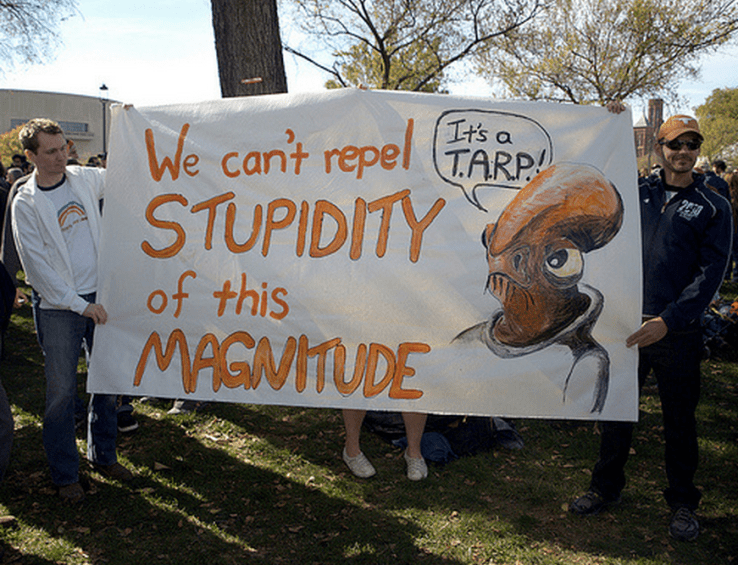Via TechCrunch
-----

Not very often do you read something online that gives you the chills. Today, I read two such things.
The first came from former Gizmodo, Buzzfeed and now Awl writer John Herrman, who wrote about the brutality of the mobile social (or for sake of discussion ‘fourth’) Internet:
“Metafilter came from two or three internets ago, when a
website’s core audience—people showing up there every day or every week,
directly—was its main source of visitors. Google might bless a site
with new visitors or take them away.
Either way, it was still possible for a site’s fundamentals to be
strong, independent of extremely large outside referrers. What’s so
disconcerting now is that the new sources of readership, the apps and
sites people check every day and which lead people to new posts and
stories, make up a majority of readership, and they’re utterly
unpredictable (they’re also bigger, always bigger, every new internet
is.)”
This broke my heart. In 2008, two Internets ago, Metafilter was my favorite site. It was where I went to find out what the next Star Wars Kid would be, or to find precious baby animal videos to show my cool boyfriend or even more intellectual fare. And now it’s as endangered as the sneezing pandas I first discovered there.
National Internet treasures like Metafilter (or TechCrunch
for that matter) should never die. There should be some Internet
Preservation Society filled with individuals like Herrman or Marc
Andreessen or Mark Zuckerberg or Andy Baio whose sole purpose is to keep them alive.
But there isn’t. Herrman makes a very good point; Useful places to
find information, that aren’t some strange Pavlovian manipulation of the
human desire to click or identify, just aren’t good business these
days.
And Herrman should know, he’s worked in every new media outlet under
the web, including the one that AP staffers are now so desperate to join
that they make mistakes like this.
The fourth Internet is scary like Darwinism, brutal enough to remind
me of high school. It’s a game of identity where you either make people
feel like members of some exclusive club, like The Information
does with a pricy subscription model or all niche tech sites do with
their relatively high CPM, or you straight up play up to reader
narcissism like Buzzfeed does, slicing and dicing user identity until
you end up with “21 Problems Only People With Baby Faces Will Understand.”
Which brings me to the thing I read today which truly scared the shit out of me. Buzzfeed founder Jonah Peretti, though his LinkedIn is completely bereft of it in favor of MIT, was apparently an undergrad at UC Santa Cruz in the late 90s.
Right after graduation in 1996, he wrote a paper
about identity and capitalism in post-modern times, which tl:dr
postulated that neo-capitalism needs to get someone to identify with its
ideals before it could sell its wares.
(Aside: If you think you are immune to capitalistic entreaties, because you read Adbusters and are a Culture Jammer,
you’re not. Think of it this way: What is actually wrong with being
chubby? But how hard do modern ads try to tell you that this — which is
arguably the Western norm — is somehow not okay.)
The thesis Peretti put forth in his paper is basically the blueprint for Buzzfeed, which increasingly has made itself All About You. Whether you’re an Armenian immigrant, or an Iggy Azaelia fan or
a person born in the 2000s, 1990s or 80s, you will identify with
Buzzfeed, because its business model (and the entire fourth Internet’s )
depends on it.
As Dylan Matthews writes:
“The way this identification
will happen is through images and video, through ‘visual culture.’
Presumably, in this late capitalist world, someone who creates a website
that can use pictures and GIFs and videos to form hundreds if not
thousands of new identities for people to latch onto will become very
successful!”
More than anything else in the pantheon of modern writing or as the
kids call it, content creation, Buzzfeed aims to be hyper-relatable,
through visuals! It hopes it can define your exact identity, because
only then will you share its URL on Facebook and Twitter and Tumblr as
some sort of badge of your own uniqueness, immortality.
If the first Internet was “Getting information online,” the second
was “Getting the information organized” and the third was “Getting
everyone connected” the fourth is definitely “Get mine.” Which is a
trap.
Which Cog In The Digital Capitalist Machine Are You?

